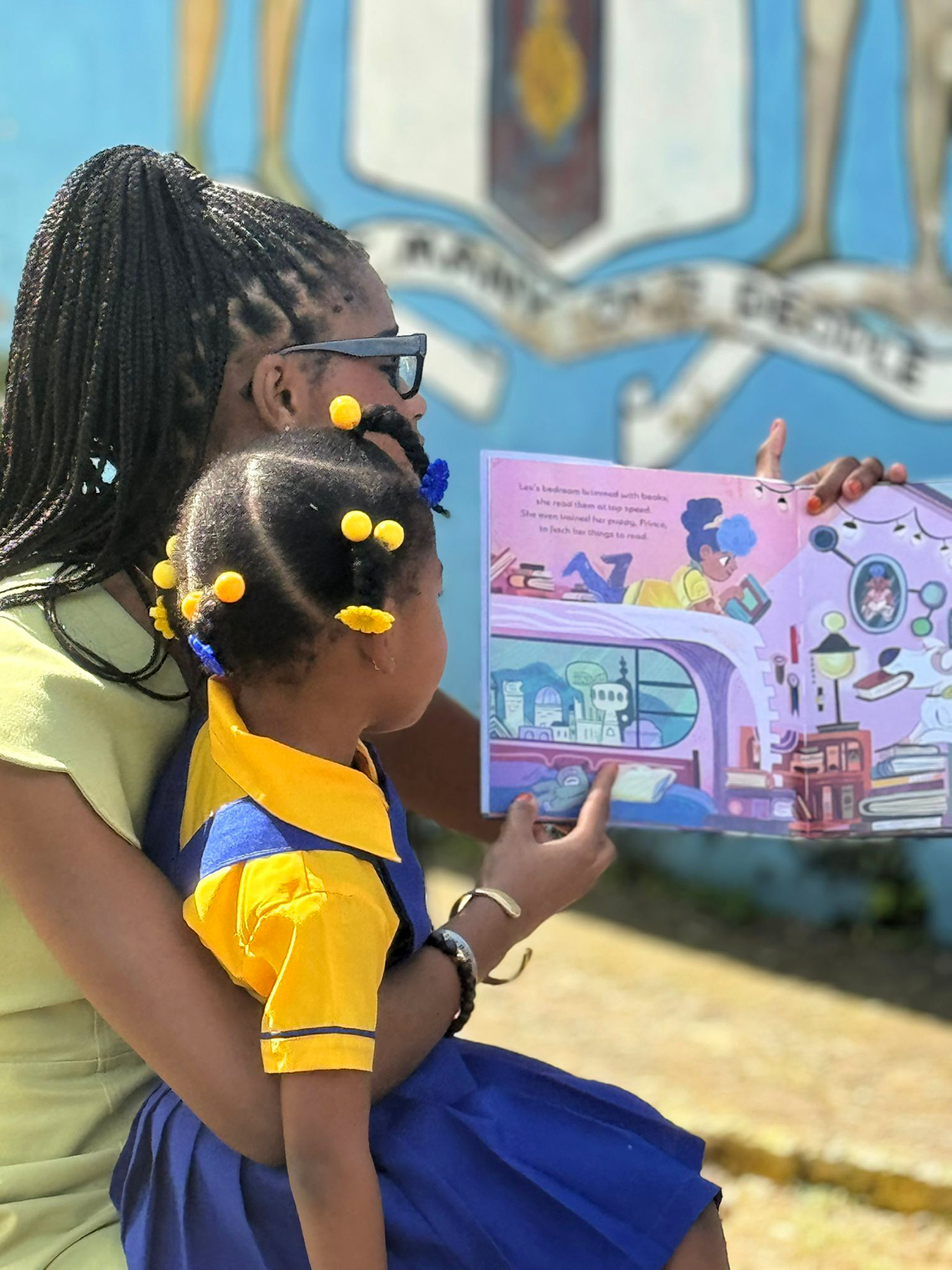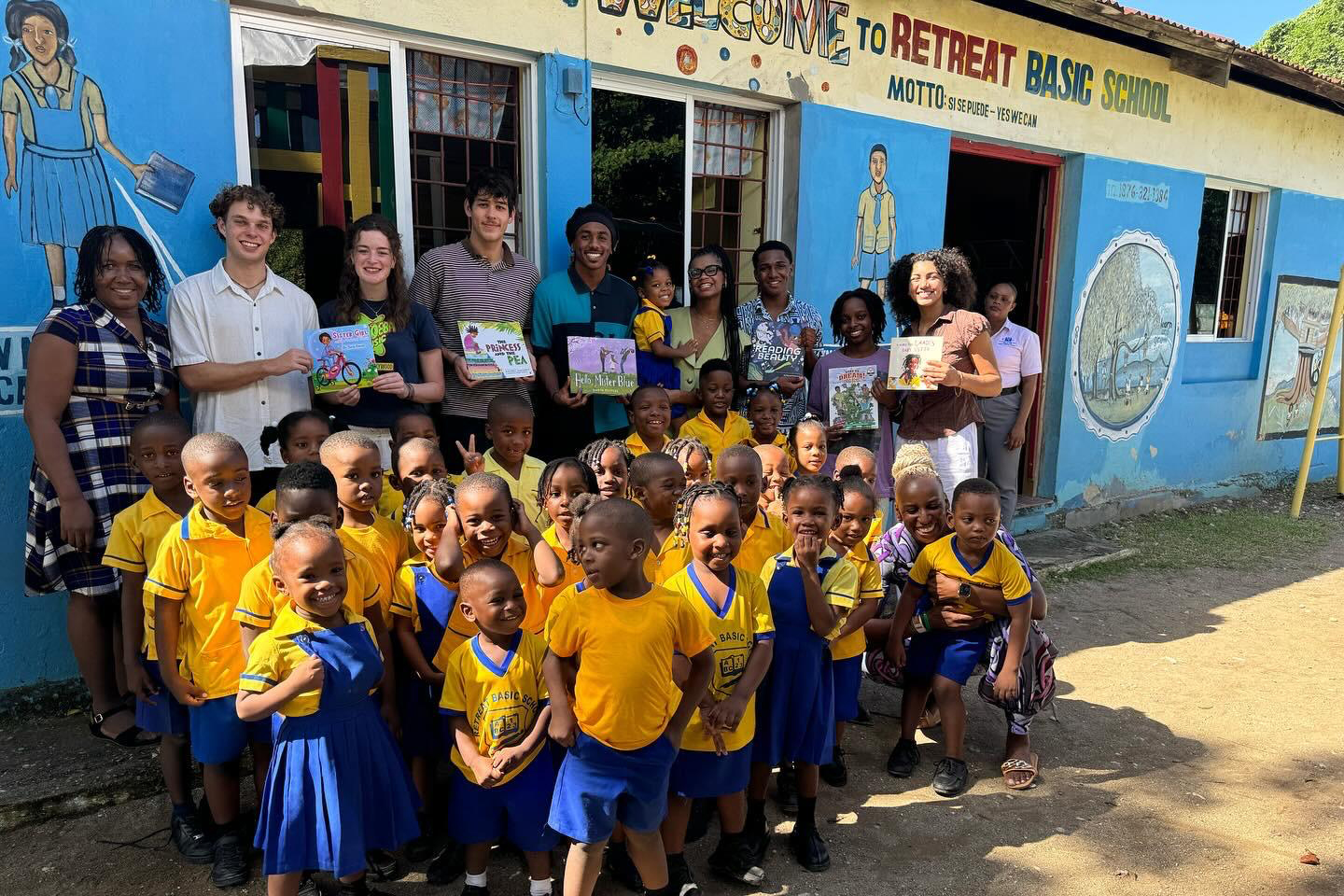In the flurry of the US’s book bans, young Marley Dias is an activist working to keep and extend access to restricted books, particularly those representing young Black girls. For her work, she's also been recognized as a Young Activist Summit Laureate for 2024.
The US has seen an increase in the number of books being removed from schools and public libraries. According to the American Library Association (ALA): "Library staff in every state faced an unprecedented number of attempts to ban books… Most targeted books were by or about Black or LGBTQIA+ persons."
While news headlines have softened on the topic, book removal attempts remain rife. The ALA also raises soft censorship as an issue in the US, “where books are purchased but placed in restricted areas, not used in library displays, or otherwise hidden or kept off limits due to fear of challenges illustrate the impact of organized censorship campaigns on students’ and readers’ freedom to read.”
In her own words, Marley Dias shares how she became an activist at just 10 years old and how she continues to work against this challenging yet critical issue.
I am Marley Dias, founder of the#1000BlackGirlBookscampaign
At 10 years old, I started to collect and donate 1,000 books with Black girls as the main characters.
The campaign gained momentum online in 2016 and the work has continued for the past nine years, resulting in the publication of Marley Dias Gets It Done: And So Can You! in 2018 — a book about the campaign and social justice which I had the fortune of writing — a Netflix series called Bookmarks: Celebrating Black Voices in 2020, and most recently being the youngest honoree at the 2024 Young Activist Summit.
I would describe myself as brave, someone who's spent their life listening to their community and looking to share their stories, even when facing fear or the possibility of failure. My childhood was full of love, reading, and Black communities. My mom, founder of the GrassROOTS Community Foundation, has done work since 2010 to serve women and girls. Watching her care so deeply and speak freely about the need for equality instilled in me the strength to serve others.
 In the flurry of the US’s book bans, Marley Dias became an activist at just 10 years old, working to keep and extend access to restricted books, particularly those representing young Black girls.
In the flurry of the US’s book bans, Marley Dias became an activist at just 10 years old, working to keep and extend access to restricted books, particularly those representing young Black girls.
I saw a problem in my community and wanted to change it.
So I became an activist. I believe that every one of us can be an activist and that with the proper resources and commitment, communities can transform with the dreams of a single person — especially a child.
My earliest memory of wanting to be an activist was watching a Disney Friends for Change commercial, where my favorite childhood actors shared the opportunity to receive funding from Disney for a social action project. At about 10 years old, my two childhood best friends and I supported the Newark YMCA, where I gave away books to children. I loved the work so much and wanted to continue, and it later led to the founding of #1000BlackGirlBooks when I noticed that the books I was assigned did not have Black girls as the main characters. My mother encouraged me to do something about it, and the rest is history.
I currently serve as the National Ambassador to the U.S. National Education Association.
I lead media and advocacy efforts to put an end to book banning. I also work on the Congressional Black Caucus Foundation's National Racial Equity Initiative Task Force, which advocates for equity for Black folks on the political, educational, and social stage. As a junior at Harvard studying sociology, and African and African American studies, I look to understand our current inequalities through the lens of poverty, colonialism, militarism, and gender-based violence.
The #1000BlackGirlBooks campaign continues, where I collect books sent to me by followers, publishing houses, authors, and more, and donate them to communities worldwide.
This work matters because literacy matters. In the United States, 54% of adults do not read above the 6th-grade level. While some consider this the result of laziness, poor education, and technological advancement, I believe that by keeping assigned reading lists and pedagogy the same in schools — even as communities become more multi-racial, queer, and diverse — Americans have decided that reading will not help them understand the world around them. The work I do is to encourage institutions to reconsider the role of reading in creating citizens who support one another, understand inequality, and seek to change the world.
To me, justice means the ability to confront hard truths.
Not as good or bad — rather than choosing comfortable lies. Justice requires a pursuit of truth, humility to be wrong, and empathy that looks to create solutions. Justice is never easy to attain, as most people would rather feel "right" or "comfortable" than confront their wrongdoing or ignorance.
I've faced many challenges — one being the rise of book banning.
I began this work citing the unintentional exclusion of Black girl books by teachers who had not been given culturally adaptive, diverse books for their libraries. Now, when parents see that their kid is assigned a book about slavery or an LGBTQ+ story, they want the book to be banned for all students. I call this the "tyranny of the few," where current legal tensions around "parent's choice" embolden parents to become stakeholders in issues that should be left to educators and education policy efforts.
According to PEN America in 2022, 2,000 books were banned across the country. In 2023, 4,000 were banned. In 2024 over 10,000 books were banned. This is indicative of a national crisis, not to mention the rise of fascism across the globe where censorship is used to keep individuals unaware of their social and political realities.
Due to the years of work I've done, I feel that I can freely express these concerns, but I remain in awe of how public school districts have gone backward in the past three years. I do not worry about violence or backlash because I know that millions of Black leaders have dealt with this over time. I live in a freer world and have the power to change it — fear will not advance my cause.
Activists like myself need funding.
The work we do requires resources, and constantly applying for grants, making pitches, and working as a social entrepreneur is exhausting. With a future of activism ahead, I remain concerned about how little funding so many of my peers are able to secure even as our work changes the world and is celebrated by brands.
Beauty, fashion, and lifestyle content can often use activists and content creators with a justice focus as a marker for equity through sponsored content. However, the lack of sufficient compensation to fuel their organizing work leaves them without sufficient resources.
My work needs the support of educational districts and educational institutions to help provide the empirical and social need for diverse books. Alongside the GrassROOTS Community Foundation, I have launched the Youth Crime and Literacy study, donating books to three hubs of high crime and low literacy in Jamaica, looking to see how 3-5 years of community engagement interventions can work to reduce crime and incarceration rates for young people.
Doing this work in the United States is hard...
...particularly as schools become political battlegrounds. I would love to work with a large school district in the United States and do this work, generating results that can create change across the country.
People can get in touch with my organization through www.marleydias.com, which has a list of 1,000 of the books that I've collected for folks to buy. If you are interested in collaborating or supporting the work, please email teammarley@skaibluemedia.com!
This article, as narrated to Gugulethu Mhlungu, has been slightly edited for clarity.
The 2024-2025 In My Own Words Series was made possible thanks to funding from the Ford Foundation.

